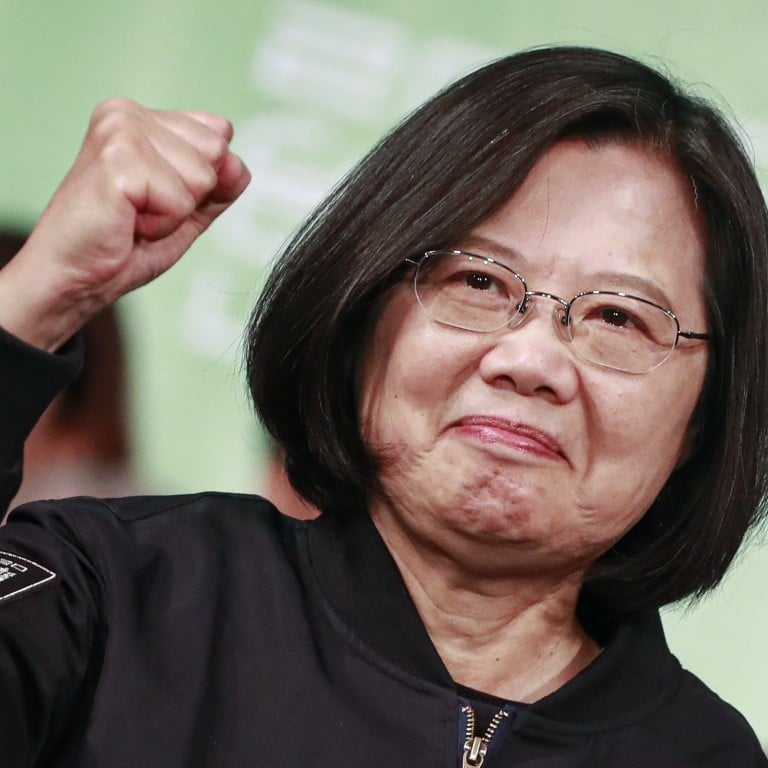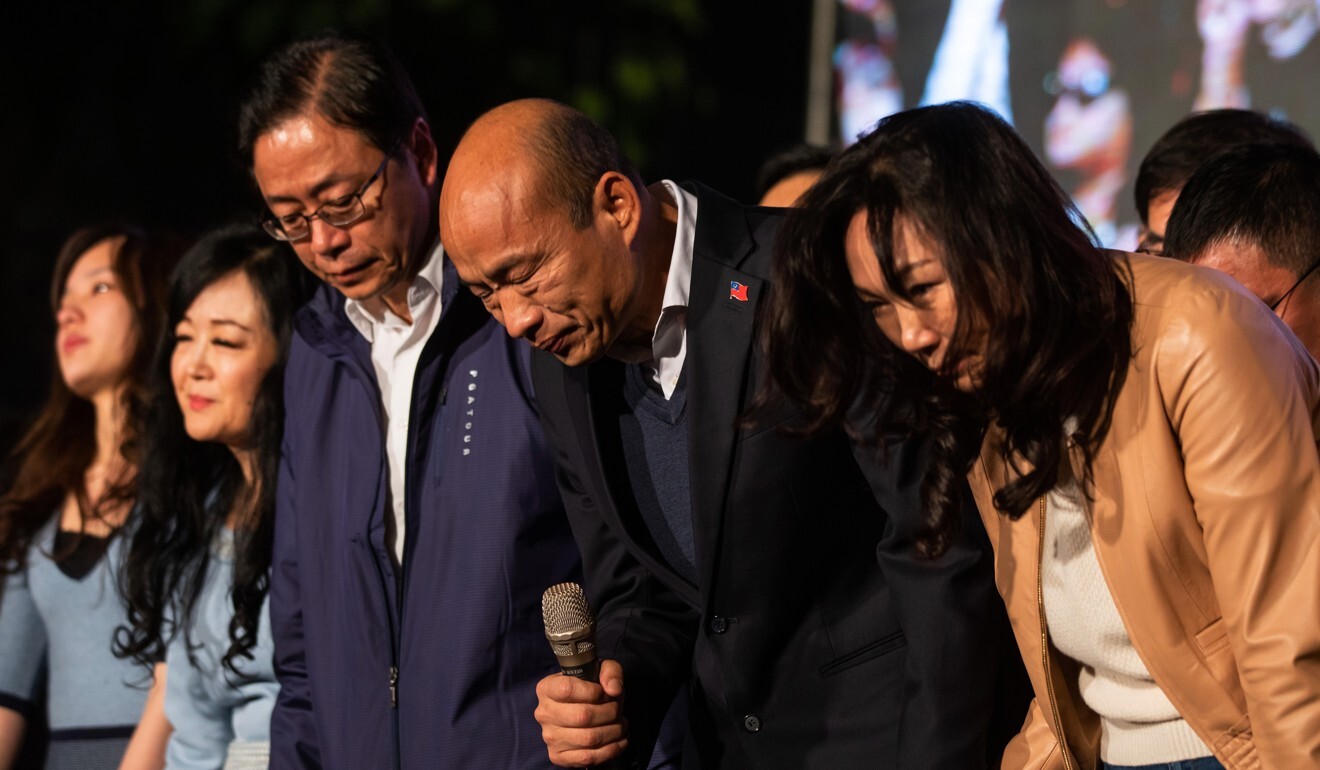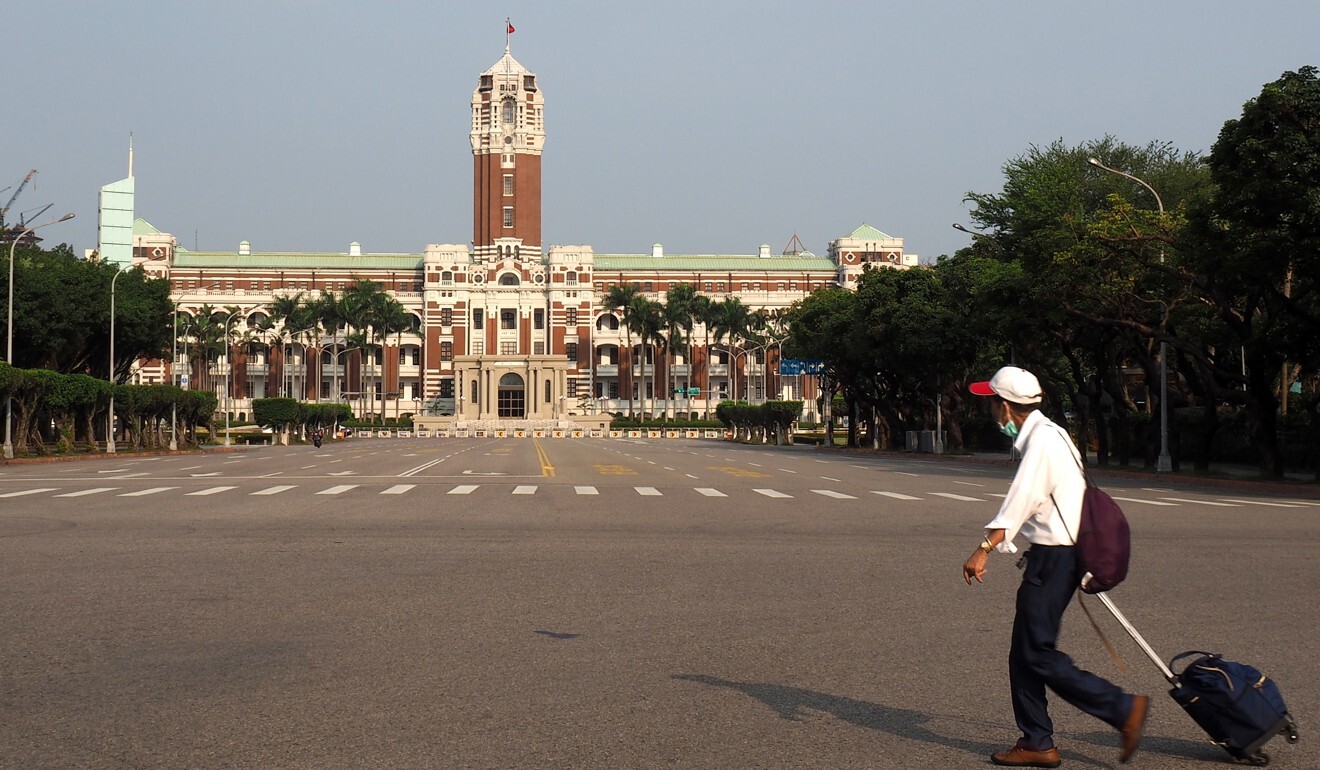
Taiwan’s Tsai Ing-wen may offer olive branch, but Beijing has ‘no expectations’
- After landslide election win, Tsai is expected to set out a ‘stable and consistent’ cross-strait policy when she is sworn in on May 20
- There may not be a war but tensions will flare as the president refuses to accept one-China principle and engages with the US, analyst says
Taiwan’s President Tsai Ing-wen may extend an olive branch to the mainland when she is sworn in for a second term next week, but analysts said it would do little to ease tensions with Beijing.
They said while Tsai was expected to call for stability and peaceful development of cross-strait ties during her speech on May 20, Beijing would continue its pressure and military intimidation of the self-ruled island for as long as she refused to accept the one-China principle.
Tsai, of the independence-leaning Democratic Progressive Party, won the January election in a landslide with over 8 million votes – 3 million more than her main rival Han Kuo-yu of the mainland-friendly Kuomintang, who was believed to be Beijing’s preferred candidate.
Beijing considers Taiwan a wayward province that must return to the mainland fold, by force if necessary. Tsai’s refusal to accept the one-China principle since she became president in 2016 has angered Beijing, and it has tried to squeeze the island by stopping official exchanges with Taiwan, staging war games nearby and poaching seven of its diplomatic allies.

Some in the hardline pro-independence camp have suggested Tsai’s decisive victory gives her a strong mandate to reject integration with the mainland and have called on the president to speak more firmly about the island’s independent status in her inaugural speech.
But presidential spokesman Ting Yun-kung on Monday said Tsai would set out a steady and consistent cross-strait policy for her next four-year term.
“The president’s inaugural speech is still being drafted, and in terms of the cross-strait policy, it is expected to be stable and consistent” with what is in place, Ting said, referring to a relatively moderate policy for maintaining the peaceful development of relations.
According to analysts, even if Tsai took a more moderate stance towards the mainland in her speech, it would not improve ties with Beijing, which was still irate over her rejection of the one-China principle and perceived pro-independence moves made by the president and her ruling party.
“A cross-strait war might not happen during her next term, but inevitably tensions between the two sides will flare due to Tsai’s reluctance to accept the one-China principle and her attempt to use the island’s deepened engagement with the United States to counter Beijing,” said Wang Kung-yi, a political science professor at the Chinese Culture University in Taipei.
He said Tsai had built up anti-mainland sentiment in Taiwan and it was key to her election win, making it impossible for her to suddenly change her policy.
“Beijing is well aware of this, so it has no expectations for her at all,” Wang said.
Lin Ying-yu, a strategic studies and international relations professor at National Chung Cheng University in Taiwan, said Beijing had been upset by what it saw as Taipei using the Covid-19 pandemic to boost its international profile.
“In response, it has used war games to try to intimidate Taiwan while at the same time distract the attention of the Chinese public over the Chinese government’s handling of the outbreak,” he said, adding that he expected tensions to rise in Tsai’s next term.
Taiwan appeals to WHO for ‘first-hand information’ on coronavirus pandemic
Wang said the initial approval of a DPP lawmaker’s proposal to amend legislation to remove mention of cross-strait unification would further infuriate Beijing.
Lawmaker Tsai Yi-yu on Friday proposed that the phrase “before the unification between Taiwan and China” be taken out of the text of the Act Governing Relations Between the People of the Taiwan Area and the Mainland Area. The sensitive proposal passed the first reading and needs to go through two more readings.
In Beijing, Ma Xiaoguang, a spokesman for the mainland’s State Council Taiwan Affairs Office, on Saturday warned against such a move, saying it was dangerous for cross-strait ties.
Taiwan’s policymaking body the Mainland Affairs Council said the government’s cross-strait policy was maintained in line with the constitution of the Republic of China, Taiwan’s official name.

Tsai Ing-wen’s swearing-in ceremony next week will be kept simple given the coronavirus pandemic, according to her spokesman. She will take the oath at the presidential office and give a speech at the Taipei Guest House attended by foreign envoys stationed in Taiwan. Unlike previous inaugurations, there would be no other events and no foreign dignitaries had been invited, Ting said.

